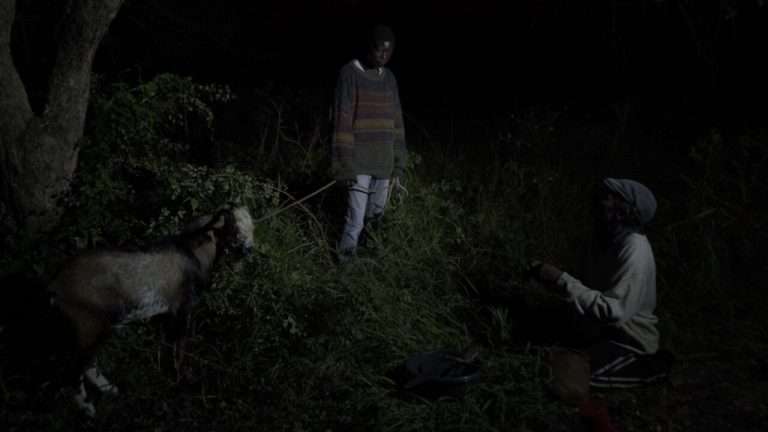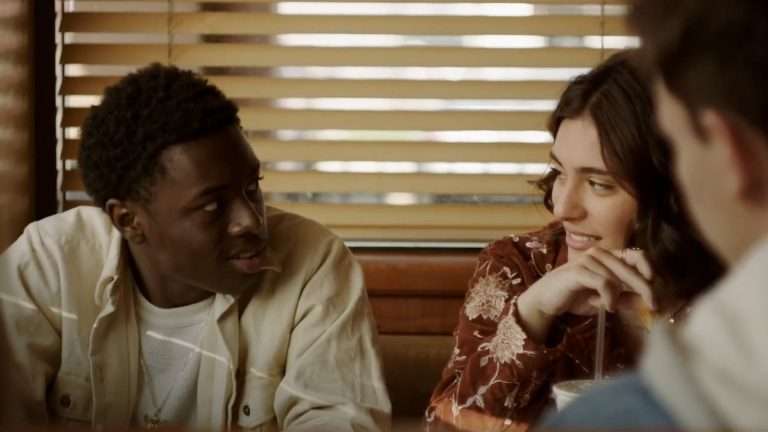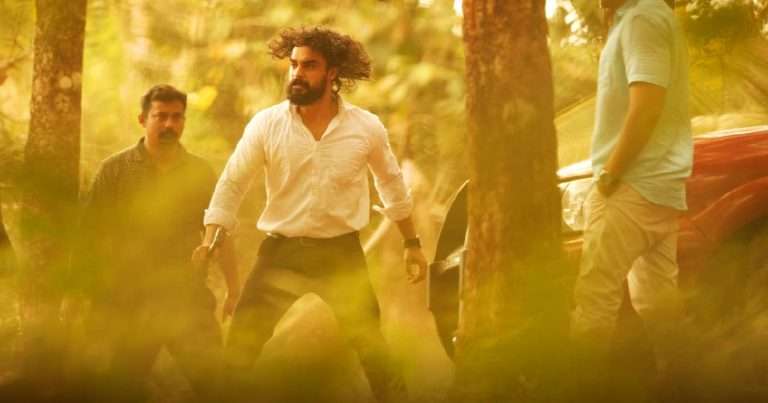For his latest offering, prolific French director François Ozon adapts Camus’ existentialist classic “The Stranger” (Original title: L’Étranger) into a beautifully shot, faithful adaptation that nonetheless opens the work up and imbues it with subtle flourishes of the modern. It’s a straightforward, effective telling of a notoriously opaque story, and Ozon finds a way to give it added relevance by leaning into the novella’s laconic, understated voice.
“The Stranger” takes place in the early 1940s in Algeria, ostensibly telling the story of a French settler whose comfortable life in the French colony is upended by a series of events, which the protagonist meets with curious indifference. The original text was informed by Camus’ early journalism into the Algerian public’s dissatisfaction with life under French occupation. It speaks to issues of colonialization, racial tensions, and the Nazi occupation during which the book was written, and its action takes place. It’s a story, in part, about moral hypocrisy – the sins society will and won’t forgive – and the ways that societies justify decisions after the fact.
Ozon has made 22 films over the last 25 years, and his adaptation of “The Stranger” benefits from a sure hand that ably interprets the text. Unlike the other, higher-profile adaptation that premiered in the 82nd Venice Film Festival’s competition, Guillermo del Toro’s “Frankenstein,” this adaptation has a light touch that brings out the tone and lets it breathe. Both films are stories about monsters, society, and which is ultimately which, but where del Toro’s faithfulness leads to melodrama, Ozon’s fidelity here leads to something more simple, beautiful, and disturbing.
Adapting Camus’s incredibly famous novella is, like the text, a layered task that appears simple. The book is short, and its text is terse but layered with subtext. Its first line is one of the most famous in Western literature, the translation of which (“Aujourd’hui, maman est morte.”) continues to stoke debate. Ozon wisely sidesteps all of it. In a slight change – one of few – he begins the story with a flash forward before going back to the novella’s starting point. The filmmaker also opts for a screenplay free of voiceover. This was a welcome change given how much the rest of the Venice competition relied on it, but also an inspired choice. Camus’s work is famously first-person, making the moral ambiguity of it all the more telling.
Ozon instead opts for an adaptation that’s incredibly devoted to the text by showing its voice rather than telling. Its main tool is Manu Dacosse’s stark, gorgeous cinematography. Shot in black and white, each frame is subtly but strongly composed. There are moments when “The Stranger” feels like it could have been made in the 1940s, not just set in it. The other not-so-secret weapon in Ozon’s arsenal is lead Benjamin Voisin, whose blank stare and intriguing indifference stand in for the grayscale morality of the occupation from which he benefits.
Given the relatively straightforward action of the story, the changes Ozon makes are telling. He inserts more overt references to the occupation and the absent-minded entitlement with which the occupiers conduct themselves. The beginning and ending are also festooned with short but impactful flourishes. The flash forwards that accompany the first half add a new dimension of foreignness to the story, just as the last shot gives a flash of familiarity.

Thankfully, Ozon keeps the story’s climax in place, shooting it cinematically and as a culmination of all the confusion and morass that’s built up. Here, Voisin gets to crack his façade of indifference and ennui. This is a story about justice as an afterthought, and Ozon frames this release as an attack on a complacent audience and public that’s comfortably settled into its indifference.
As a seminal work of existentialism, “The Stranger” is an inherently alienating text, detached from its readers and its own voice even as it spills out in first-person. Ozon and his filmmaking team seek to – and succeed at – capturing the text’s atmosphere and alienation through a marriage of form and function. The camera visualizes the observations of the book’s narrator.
For those familiar with Camus’ text, “The Stranger” hinges on an inciting action that essentially splits the tale in two. The film’s foreshadowing and eventual framing of this action is another smart choice that preserves the thematic richness of the story and some light symbolism, while also lending itself to this cinematic representation. In adapting “The Stranger,” Ozon reflects on Camus’ hinting about light and sun.
It’s a universal symbol, both eternally constant and empty in its ubiquity, but here the dawning light represents something that’s equally illuminating and damning. The fuzziness with which the camera treats light – the sun on a hot day, a single light bulb breaking through the mist of darkness – contrasts with the otherwise sculpting black-and-white cinematography. It’s a layered study in contrasts, the itching of an errant, pesky thought that just can’t quite be articulated. It’s in these subtle choices that Ozon and team find…The Stranger.
Camus’ book was released more than 80 years ago. It premiered in competition with several other adaptations. Aside from del Toro’s “Frankenstein,” the competition included film remakes (“Bugonia”), adaptations of more recent work (“The Wizard of the Kremlin,” “At Work”), historical biopics (“Duse,” “The Testament of Ann Lee”) and hybrid tales drawn from real, recent events (“Elisa,” “The Voice of Hind Rajab”).
It’s telling that Camus’ story continues to take on added value, with its detached protagonist perhaps seeming even more relatable in the remove of the social media era. In a sea of stories trying for relevance, Ozon finds meaning in training his camera on one blank stare radiating out of a sea of them.




![A Monster Calls [2016] : An endearing tale of acceptance](https://79468c92.delivery.rocketcdn.me/wp-content/uploads/2017/02/a-monster-calls-768x429.jpg)

